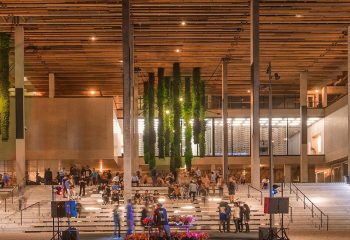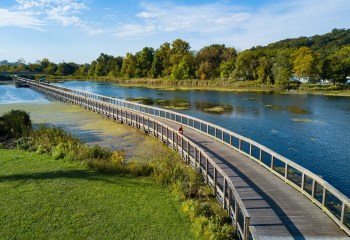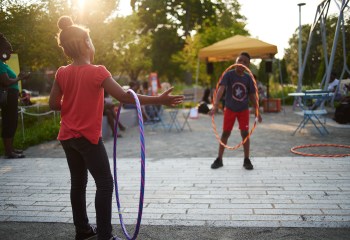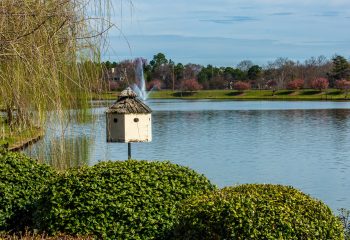DETROIT – (July 31, 2020) – Amid a national conversation about race and equality, a landmark study reveals a gap in access to arts and culture in Detroit for residents of color as compared to whites.
Commissioned by the Knight Foundation and conducted by the Urban Institute, “Community Ties: Understanding what attaches people to the place where they live,” reveals that access to arts and culture stands out among urban amenities that boost residents’ feelings of attachment and likelihood of investing time and resources in their local community. But the study also revealed disparities in who has access to these amenities, which were most pronounced along racial and class lines — a scenario that some Blacks and other communities of color face in Detroit.
While 74% of all Detroit residents said they have very easy access to arts and cultural activities, that number rose to 79% for white residents and dropped to 65% for non-whites. This gap in access to arts is deeper in Detroit than it is nationally, where 69% of metro residents of color reported easy access versus 73% of whites. At the same time, non-white residents in Detroit ranked arts and culture of greater importance to them than whites.
“Detroiters believe that the presence of art and culture in our lives is essential to our collective well-being, despite the fact that Blacks and other communities of color report a harder time accessing them,” said Nate Wallace, director for Knight Foundation’s Detroit program. “This is the time for us to reimagine a more equitable arts and cultural sector.”
Conducted prior to the COVID-19 shutdowns, the Community Ties report leverages a survey of 11,000 Americans living in urban metro areas to create one of the richest datasets available on what drives attachment to place, perceived access to urban amenities, and what cities might do to deepen a sense of connection to their community. One of the largest surveys of its kind, the study sampled residents nationally and in 26 metro areas — including Detroit.
As cities begin to rethink racial justice and equity, and reimagine a post-pandemic world, the report provides information for public officials and other leaders to use in making communities more resilient and think anew about how to build places where people want to live, work and play.
“The arts have a singular power to help us understand ourselves and each other — to connect with each other and to the places where we live,” said Priya Sircar, Knight’s director of Arts program. “Every community member deserves equitable opportunities to participate meaningfully in Detroit’s unique culture. The national conversation about equity carries a mandate for all of us who are working to improve our communities to strive even harder to ensure an equitable future.”
To see how your city compares in different areas with other Knight communities and the national averages, go to our interactive website.
For interviews, please contact Alise Murawski at [email protected] | 202-702-6903.
###
About the John S. and James L. Knight Foundation
Knight Foundation is a national foundation with strong local roots. We invest in journalism, in the arts, and in the success of cities where brothers John S. and James L. Knight once published newspapers. Our goal is to foster informed and engaged communities, which we believe are essential for a healthy democracy. For more, visit kf.org.
About Urban Institute
The nonprofit Urban Institute is a leading research organization dedicated to developing evidence-based insights that improve people’s lives and strengthen communities. For 50 years, Urban has been the trusted source for rigorous analysis of complex social and economic issues; strategic advice to policymakers, philanthropists and practitioners; and new, promising ideas that expand opportunities for all. Our work inspires effective decisions≈that advance fairness and enhance the well-being of people and places.





